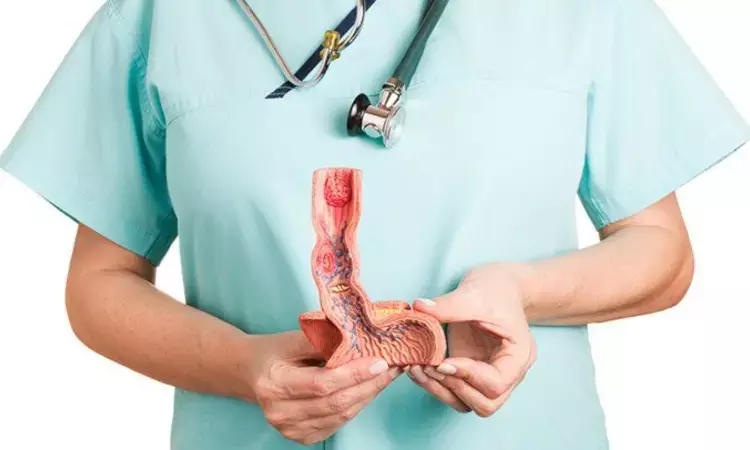- Home
- Medical news & Guidelines
- Anesthesiology
- Cardiology and CTVS
- Critical Care
- Dentistry
- Dermatology
- Diabetes and Endocrinology
- ENT
- Gastroenterology
- Medicine
- Nephrology
- Neurology
- Obstretics-Gynaecology
- Oncology
- Ophthalmology
- Orthopaedics
- Pediatrics-Neonatology
- Psychiatry
- Pulmonology
- Radiology
- Surgery
- Urology
- Laboratory Medicine
- Diet
- Nursing
- Paramedical
- Physiotherapy
- Health news
- Fact Check
- Bone Health Fact Check
- Brain Health Fact Check
- Cancer Related Fact Check
- Child Care Fact Check
- Dental and oral health fact check
- Diabetes and metabolic health fact check
- Diet and Nutrition Fact Check
- Eye and ENT Care Fact Check
- Fitness fact check
- Gut health fact check
- Heart health fact check
- Kidney health fact check
- Medical education fact check
- Men's health fact check
- Respiratory fact check
- Skin and hair care fact check
- Vaccine and Immunization fact check
- Women's health fact check
- AYUSH
- State News
- Andaman and Nicobar Islands
- Andhra Pradesh
- Arunachal Pradesh
- Assam
- Bihar
- Chandigarh
- Chattisgarh
- Dadra and Nagar Haveli
- Daman and Diu
- Delhi
- Goa
- Gujarat
- Haryana
- Himachal Pradesh
- Jammu & Kashmir
- Jharkhand
- Karnataka
- Kerala
- Ladakh
- Lakshadweep
- Madhya Pradesh
- Maharashtra
- Manipur
- Meghalaya
- Mizoram
- Nagaland
- Odisha
- Puducherry
- Punjab
- Rajasthan
- Sikkim
- Tamil Nadu
- Telangana
- Tripura
- Uttar Pradesh
- Uttrakhand
- West Bengal
- Medical Education
- Industry
Radiofrequency ablation effective in preventing esophageal cancer, study finds

UK: In a new study conducted by Paul Wolfson and team, it was shown that Radiofrequency ablation (RFA) therapy is both effective and long-lasting in the prevention of esophageal cancer. The majority of therapy relapses occur early and may be effectively treated again. The findings of this study were published in the journal Gastrointestinal Endoscopy.
This study was conducted with the purpose to check long-term durability data on radiofrequency ablation's usefulness in preventing esophageal cancer in individuals with dysplastic Barrett's esophagus (BE) are inadequate.
This study collected data from 2,535 individuals with neoplasia (20% low-grade dysplasia, 54% high-grade dysplasia, 26% intramucosal carcinoma) and BE (mean length 5.2cm, range 1-20cm) who had RFA treatment in 28 UK institutions. Invasive cancer rates were assessed, and a comprehensive study of 1,175 patients was undertaken to determine clearance rates of dysplasia (CR-D) and intestinal metaplasia (CR-IM) within 2 years after initiating RFA therapy. Relapse rates and rates of return to CR-D (CR-D2) and CR-IM (CR-IM2) following further therapy were also carefully examined. The lack of dysplasia and intestinal metaplasia on biopsies collected during two successive endoscopies indicated the presence of CR-D and CR-IM.
The results of this study stated as follow:
1. The Kaplan Meier (KM) cancer rate ten years after commencing therapy was 4.1 percent, with a crude incidence rate of 0.52 per 100 patient-years.
2. After two years of treatment, the CR-D and CR-IM rates were 88 and 62.6%, respectively.
3. At 8 years, KM relapse rates were 5.9% for CR-D and 18.7% for CR-IM, with the majority occurring in the first two years.
4. Two years following retreatment, both could be effectively reversed with CR-D2 (63.4%) and CR-IM2 (70.0%). EMR before RFA raised the chance of rescue EMR from 17.2% to 41.7% but had no effect on CR-D, whereas rescue EMR after RFA lowered CR-D from 91.4% to 79.7% (X2 p0.001).
In conclusion, RFA treatment for dysplastic BE seems to be successful and long-lasting in the prevention of esophageal cancer.
Reference:
Wolfson P, Ho KMA, Wilson A, McBain H, Hogan A, Lipman G, Dunn J, Haidry R; UK RFA Study Group, Novelli M, Olivo A, Lovat LB. Endoscopic eradication therapy for Barrett's Esophagus related neoplasia. A final 10 year report from the United Kingdom National Halo Radiofrequency Ablation Registry. Gastrointest Endosc. 2022 Feb 18:S0016-5107(22)00121-3. doi:10.1016/j.gie.2022.02.016. Epub ahead of print. PMID: 35189088.
Medical Dialogues consists of a team of passionate medical/scientific writers, led by doctors and healthcare researchers. Our team efforts to bring you updated and timely news about the important happenings of the medical and healthcare sector. Our editorial team can be reached at editorial@medicaldialogues.in.
Dr Kamal Kant Kohli-MBBS, DTCD- a chest specialist with more than 30 years of practice and a flair for writing clinical articles, Dr Kamal Kant Kohli joined Medical Dialogues as a Chief Editor of Medical News. Besides writing articles, as an editor, he proofreads and verifies all the medical content published on Medical Dialogues including those coming from journals, studies,medical conferences,guidelines etc. Email: drkohli@medicaldialogues.in. Contact no. 011-43720751


